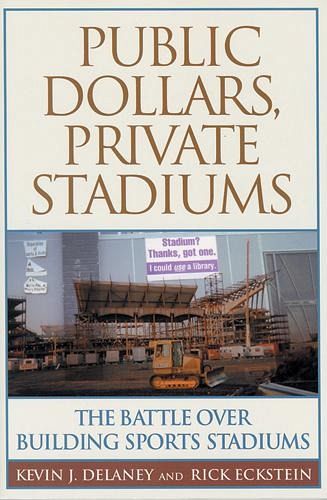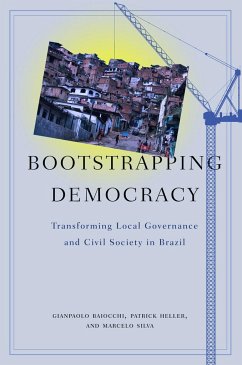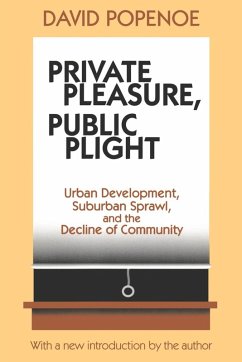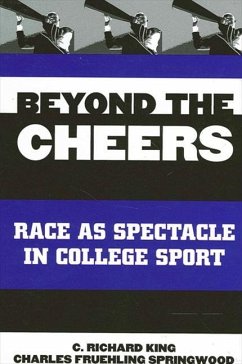
Public Dollars, Private Stadiums
The Battle Over Building Sports Stadiums
Versandkostenfrei!
Versandfertig in über 4 Wochen
41,99 €
inkl. MwSt.

PAYBACK Punkte
21 °P sammeln!
Do sports stadiums really revitalize a community, bringing revenue, jobs, and status as a "major league" city? Since the mid-1980s, nearly ten billion dollars of public money have financed new playing fields, so they must be worth the investment, right? In Public Dollars, Private Stadiums, Kevin J. Delaney and Rick Eckstein suggest otherwise. The authors provide an eye-opening account of recent battles over publicly financed stadiums in some of America's largest cities. Their interviews with the key decision makers present a behind-the-scenes look at how and why powerful individuals and organi...
Do sports stadiums really revitalize a community, bringing revenue, jobs, and status as a "major league" city? Since the mid-1980s, nearly ten billion dollars of public money have financed new playing fields, so they must be worth the investment, right? In Public Dollars, Private Stadiums, Kevin J. Delaney and Rick Eckstein suggest otherwise. The authors provide an eye-opening account of recent battles over publicly financed stadiums in some of America's largest cities. Their interviews with the key decision makers present a behind-the-scenes look at how and why powerful individuals and organizations foist these sports palaces on increasingly unreceptive communities. While greedy sport franchise owners usually take the rap, this book reveals that they aren't always the driving force behind construction. Instead, pressure to build often comes from an unexpected quarter-local growth coalitions. These non-sports corporations view the facilities as an important tool in attracting new executives, and are more than willing to have their recruiting bills paid by local taxpayers. Delaney and Eckstein show that in the face of studies demonstrating that new sports facilities don't live up to their promise of big money, proponents are using a new tactic to win public subsidies--intangible "social" rewards, such as prestige and community cohesion. The authors find these to be empty promises as well, demonstrating that new stadiums may exacerbate, rather than erase, social problems in cities.














